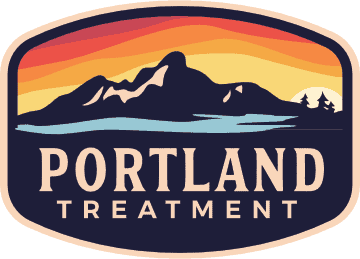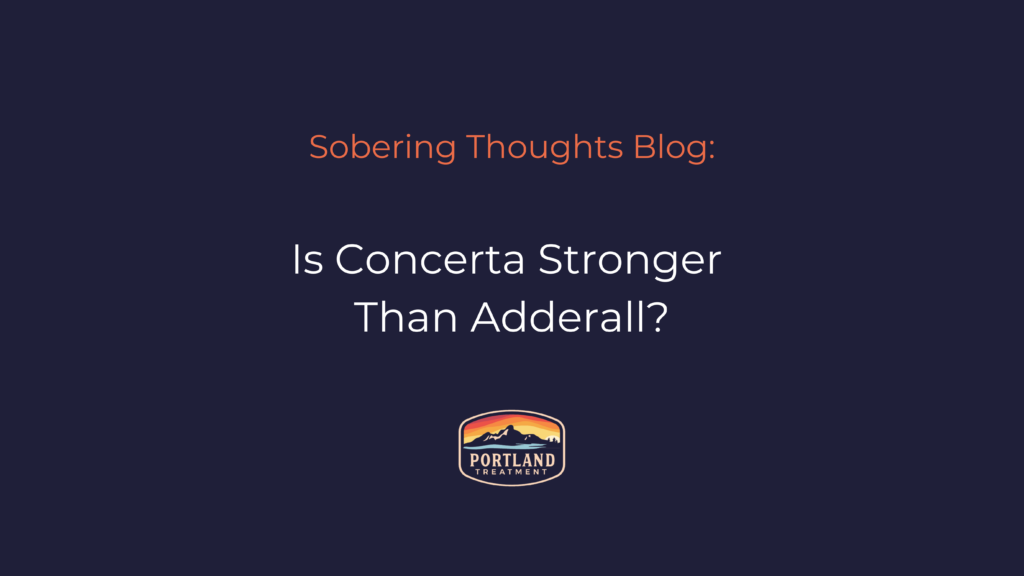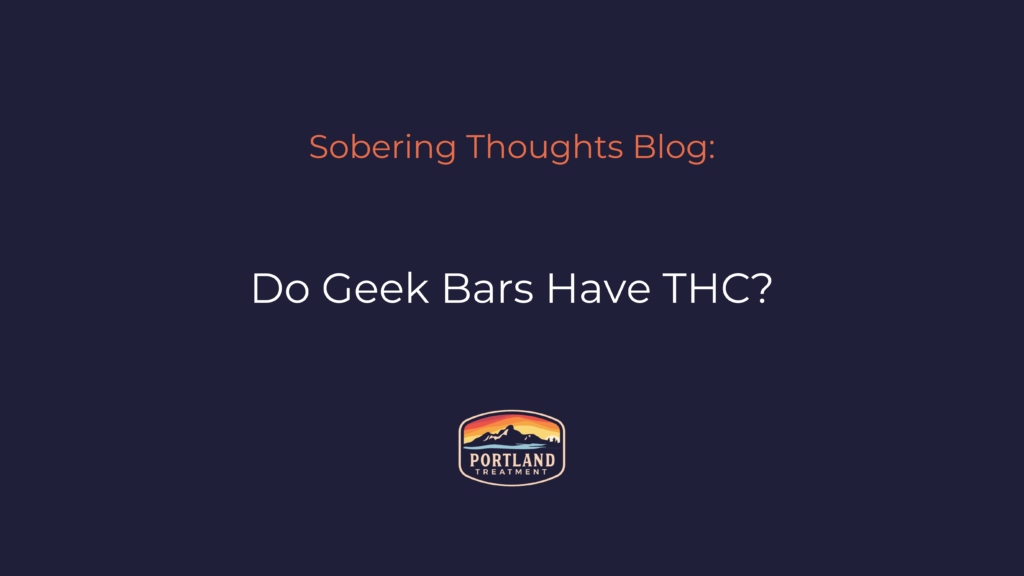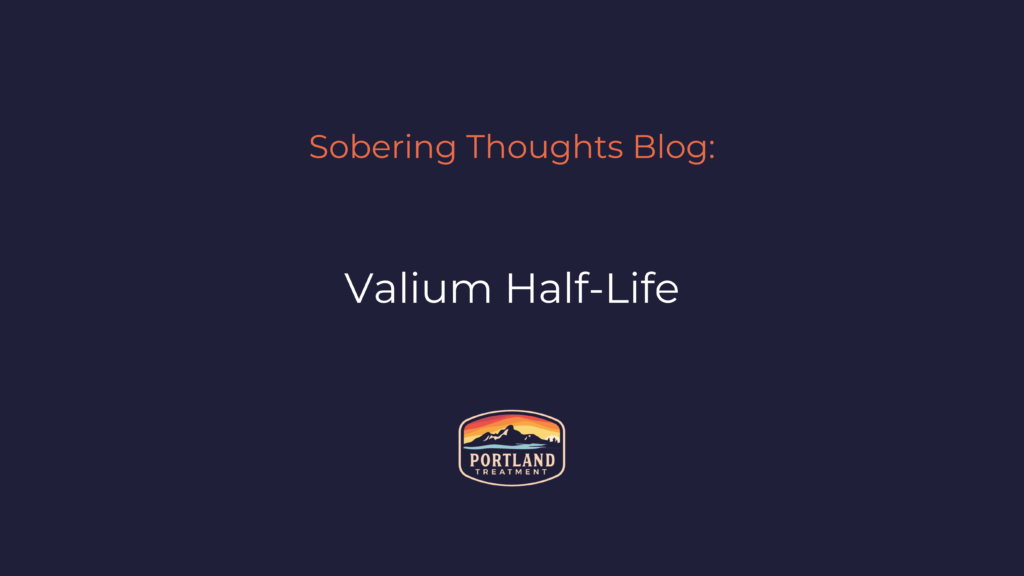Are you or a loved one struggling with methamphetamine addiction and seeking support in the Portland, Maine area? Understanding the signs of meth addiction, available treatment options, and ongoing support services is crucial in finding the right path toward recovery. From identifying the signs of meth addiction to choosing a treatment center, exploring personalized care …
Are you or a loved one struggling with methamphetamine addiction and seeking support in the Portland, Maine area? Understanding the signs of meth addiction, available treatment options, and ongoing support services is crucial in finding the right path toward recovery.
From identifying the signs of meth addiction to choosing a treatment center, exploring personalized care plans, and understanding long-term recovery, this comprehensive guide will provide valuable insights into the various aspects of methamphetamine addiction care in the Portland, Maine area.
Whether you are looking for information on rehabilitation options, behavioral therapies, medication-assisted treatment, or holistic approaches to recovery, this article aims to equip you with the knowledge needed to make informed decisions and embark on a journey towards a healthier, drug-free life.
Understanding Methamphetamine Addiction
Methamphetamine addiction is a significant and multifaceted problem that impacts individuals and communities throughout the state of Maine. Portland Treatment, located in close proximity to Portland, Maine, offers comprehensive addiction treatment programs for those struggling with methamphetamine addiction. The facility is dedicated to providing warm, inviting, and compassionate care to individuals facing drug and alcohol addiction in Maine.
The consequences of methamphetamine addiction extend far beyond the individual, affecting families, workplaces, and entire communities. According to the Maine Office of Substance Abuse and Mental Health Services, the use of methamphetamine contributes to increased crime rates, strains healthcare resources, and disrupts social dynamics. These wide-ranging impacts highlight the vital need for effective treatment programs like those offered by Portland Treatment in Maine.
Portland Treatment understands the unique challenges faced by individuals battling methamphetamine addiction. Their drug and alcohol addiction treatment programs, which include Partial Hospitalization Program (PHP) and Intensive Outpatient Program (IOP) levels of care, prioritize addressing the underlying factors that contribute to addiction and provide the necessary support for long-term recovery.
By offering a compassionate and comprehensive approach to addiction treatment in Maine, Portland Treatment plays a critical role in breaking the cycle of methamphetamine addiction. They aim not only to help individuals overcome their addiction but also to heal families and rebuild communities affected by the devastating impacts of substance abuse.
Signs of Meth Addiction
Recognizing the signs of methamphetamine addiction is crucial for early intervention and support.
Meth addiction can result in a range of physical symptoms, such as rapid weight loss, dental problems, skin sores, and increased body temperature. These changes can be accompanied by behavioral effects, including agitation, paranoia, increased risky behavior, and hallucinations. Individuals struggling with meth addiction may experience financial struggles, strained relationships, and problems at work or in school. These cumulative effects underscore the urgency of addressing methamphetamine addiction promptly through comprehensive treatment and support.
Meth Addiction Treatment Center
Located in the vicinity of Portland, Maine, Portland Treatment is a leading addiction treatment center offering specialized programs focused on addressing the unique challenges of methamphetamine addiction. Individuals seeking recovery will find comprehensive rehabilitation and support services, designed to provide the necessary tools for overcoming methamphetamine dependency and achieving lasting recovery from substance abuse.
At Portland Treatment, compassionate and skilled professionals, including medical and mental health experts, are dedicated to addressing the physical, emotional, and psychological effects of methamphetamine use. With a strong emphasis on evidence-based approaches and personalized treatment plans, the center ensures that each individual receives the highest quality care in addiction treatment in Maine.
The programs at Portland Treatment encompass various essential components, such as detoxification, individual counseling, group therapy, and family support. These tailored approaches address the specific needs of individuals struggling with methamphetamine addiction, offering a comprehensive treatment experience that promotes healing and empowers clients to embrace fulfilling lives free from substance dependency.
Portland Treatment acknowledges that recovery from methamphetamine addiction extends beyond the initial treatment period. Therefore, the center also emphasizes aftercare planning, which includes comprehensive support and resources to facilitate long-term sobriety and successful reintegration into daily life.
Portland Treatment distinguishes itself by offering flexible levels of care, including Partial Hospitalization Program (PHP) and Intensive Outpatient Program (IOP). This comprehensive approach ensures that individuals can access the appropriate level of support and treatment based on their unique needs and circumstances.
With a warm and inviting atmosphere, Portland Treatment creates a compassionate environment, understanding the challenges individuals face when battling drug and alcohol addiction. The center is committed to providing a supportive and nurturing space where clients can begin their recovery journey, knowing they are not alone.
For individuals seeking drug rehab in Maine, Portland Treatment stands ready to provide the professional and compassionate care needed to overcome methamphetamine addiction and achieve lasting recovery.
Approaches to Meth Addiction Treatment
Effective approaches to methamphetamine addiction treatment encompass evidence-based therapies such as Cognitive Behavioral Therapy (CBT) and the Matrix Model, which focus on addressing the behavioral and cognitive aspects of addiction. Maine’s initiatives, like MIEDAR, also play a vital role in providing comprehensive treatment for meth addiction.
CBT, one of the most widely used therapeutic approaches for methamphetamine addiction, helps individuals identify and modify harmful thought patterns and behaviors associated with substance abuse.
Similarly, the Matrix Model combines behavioral therapy, family education, and drug testing to provide a structured, evidence-based approach to treating meth addiction. The emphasis on relapse prevention and 12-step support programs enhances its effectiveness.
Maine’s integrated approach to addiction treatment through initiatives like MIEDAR (the Maine Integrated Opioid Response program) ensures that individuals struggling with methamphetamine addiction receive comprehensive care, including medication-assisted treatment, counseling, and support services.
Rehabilitation Options for Meth Addiction
Rehabilitation options for methamphetamine addiction encompass a range of comprehensive programs and supportive care, aiming to address the physical, emotional, and psychological aspects of recovery, thereby facilitating long-term wellness and sobriety.
This holistic approach often involves individual counseling, group therapy, medical supervision, and behavioral interventions. Some programs incorporate fitness activities, nutrition counseling, and mindfulness practices to promote overall well-being.
The diversity of treatment modalities allows for personalized plans tailored to the unique needs of each patient. Such comprehensive support is crucial in addressing the multifaceted elements of methamphetamine addiction and enhancing the chances of sustained rehabilitation.
Behavioral Therapies for Meth Addiction
Behavioral therapies form a cornerstone of methamphetamine addiction treatment, focusing on addressing underlying behavioral patterns and establishing supportive mechanisms for individuals and their families, facilitating holistic recovery and long-term sobriety.
These therapies, often integrated into comprehensive treatment programs, address the psychological aspects of addiction, such as triggers, coping mechanisms, and the development of healthier behaviors. They promote introspection, self-awareness, and help individuals in building the resilience needed to navigate the challenges of recovery. With a keen focus on positive reinforcement and cognitive restructuring, behavioral therapies equip individuals with strategies to manage stress, cravings, and triggers that often lead to relapse.
Along with individual-focused interventions, behavioral therapies also play a pivotal role in nurturing familial recovery. By engaging families in therapy sessions and support groups, these approaches foster understanding, empathy, and effective communication, thereby rebuilding trust and creating a conducive environment for sustained sobriety. Such involvement is instrumental in addressing family dynamics, co-dependency issues, and establishing a robust support network, essential for the long-term success of recovery.
Medication-Assisted Treatment for Meth Addiction
Medication-assisted treatment for methamphetamine addiction involves the use of targeted medications to mitigate the effects of withdrawal and cravings, complementing comprehensive recovery programs and therapeutic interventions to support individuals throughout their journey to sobriety.
This approach is designed to address the physiological and psychological challenges associated with methamphetamine addiction. By incorporating medication-assisted treatment into the overall recovery plan, individuals can benefit from the stabilization of their neurochemistry, reducing the intensity of withdrawal symptoms and minimizing cravings.
Common medications used in these treatment plans may include antidepressants to address mood disturbances and anti-anxiety medications to reduce anxiety and agitation. Medications such as naltrexone or acamprosate are utilized to target the reward centers in the brain, helping to diminish the reinforcing effects of methamphetamine use.
Support Services for Meth Addiction Recovery
Comprehensive support services play a pivotal role in facilitating methamphetamine addiction recovery, providing individuals with access to various resources, therapies, and community networks, fostering a supportive environment for sustainable healing and wellness.
These support services encompass a wide range of assistance, including counseling sessions, group therapy, education programs, and vocational training, tailored to address the diverse needs of individuals navigating through recovery. Specialized guidance for relapse prevention, mental health management, and family support further reinforce the healing environment.
In addition, the inclusion of holistic approaches, such as mindfulness practices, recreational activities, and nutritional guidance, reinforces a comprehensive approach towards wellness and recovery.
Aftercare and Relapse Prevention
Aftercare and relapse prevention strategies are integral components of methamphetamine addiction recovery, encompassing ongoing support, counseling, and coping mechanisms to mitigate the risk of relapse and sustain long-term sobriety.
These strategies play a crucial role in providing continuing care and support to individuals post-rehabilitation, addressing their evolving needs and challenges as they transition back into their daily lives. By engaging in regular counseling sessions and participating in support groups, individuals can receive guidance, encouragement, and validation, which are instrumental in maintaining their motivation and commitment to recovery.
Implementing effective relapse prevention techniques equips individuals with the necessary tools to identify triggers, manage cravings, and develop healthier coping strategies, reducing the likelihood of succumbing to old patterns of substance abuse. By building a comprehensive support network that includes family, friends, and mental health professionals, individuals can access resources and encouragement when faced with potential relapse triggers.
Family Involvement in Meth Addiction Treatment
Involving families in methamphetamine addiction treatment programs fosters a supportive and understanding environment, addressing the familial dynamics and impacts of addiction, thereby enhancing the overall effectiveness of the treatment and recovery process.
Family involvement is integral in methamphetamine addiction treatment, as it acknowledges the crucial role of family dynamics in an individual’s addiction. By engaging families, treatment programs can address the underlying issues within the family unit that may contribute to the continuation of addiction. This integrated approach not only supports the individual in recovery but also fosters a sense of cohesive unity within the family.
When families are actively involved, they can learn how to provide the necessary support and understanding, creating a more nurturing environment for the individual undergoing treatment.
Cost and Insurance Coverage for Meth Addiction Treatment
Cost and insurance coverage for methamphetamine addiction treatment in Maine can significantly impact access to care. Understanding available coverage options and financial considerations is essential for individuals seeking comprehensive treatment and support services.
Financial barriers, including out-of-pocket costs, deductibles, and copayments, can impede individuals from obtaining necessary treatment for methamphetamine addiction. The complexities of navigating insurance policies and the variations in coverage for addiction treatment pose challenges to accessing timely and effective care.
To address these issues, rehabilitation facilities and specialized programs often offer assistance in understanding insurance benefits and exploring affordable payment options, helping individuals overcome financial obstacles and access vital treatment services.
Success Rates and Statistics for Meth Addiction Treatment
Evaluating success rates and statistics for methamphetamine addiction treatment in Portland, Maine, provides insight into the efficacy of available programs and the overall impact of recovery initiatives, guiding individuals in making informed decisions regarding their treatment options.
According to recent studies, effective treatment for methamphetamine addiction typically involves a combination of behavioral therapies, counseling, and support from healthcare professionals. Statistical analysis shows that individuals who engage in comprehensive treatment programs have significantly higher success rates in achieving long-term sobriety compared to those who do not seek professional help.
The integration of evidence-based practices, such as cognitive-behavioral therapy and contingency management, has demonstrated positive results in reducing drug use and preventing relapse among methamphetamine-dependent individuals. Research indicates that treatment outcomes are often influenced by the duration of program participation and the level of personalized care provided.
Mental Health and Co-Occurring Disorders in Meth Addiction
Methamphetamine addiction often co-occurs with mental health disorders, amplifying the complexities of treatment. Addressing the interplay of addiction and mental health is crucial for providing comprehensive care and mitigating the adverse effects of substance abuse.
The integrated approach is essential in addressing the multifaceted needs of individuals struggling with co-occurring disorders. By recognizing the intricate relationship between mental health and addiction, healthcare professionals can tailor treatment plans to address both aspects simultaneously. The impact of co-occurring conditions on treatment outcomes underscores the necessity of a collaborative, holistic approach that includes mental health support alongside addiction treatment.
Integrated care models have shown promising results, emphasizing the importance of a comprehensive approach to mental health and substance abuse.
Long-Term Recovery from Meth Addiction
Achieving long-term recovery from methamphetamine addiction demands ongoing support, therapy, and holistic care, enabling individuals to sustain sobriety and wellness beyond the initial phases of treatment and recovery programs available in Maine.
Comprehensive treatment programs encompass various elements crucial for long-term recovery. These include personalized therapy sessions, integrated mental health care, medication management, and ongoing support networks. Incorporating lifestyle modifications such as physical activities, nutrition counseling, and stress management techniques into the recovery plan plays a pivotal role in fostering sustained wellness. The integration of evidence-based practices and positive reinforcement strategies further strengthens the foundation for long-term sobriety and prevents relapse. Hence, the collaboration of these elements fosters a comprehensive approach to long-term recovery from methamphetamine addiction.
Support Groups and Community Resources for Meth Addiction
Accessing support groups and community resources is instrumental in fostering a network of understanding and encouragement for individuals navigating methamphetamine addiction recovery in Maine, offering valuable connections and shared experiences.
These support groups and community resources play a pivotal role in providing a safe space for individuals to share their challenges, triumphs, and setbacks, fostering a sense of belonging and understanding. They offer access to valuable information, guidance, and practical tips for managing recovery in everyday life. By connecting with peers who have faced similar struggles, individuals can gain strength, hope, and motivation, fostering a sense of community and belonging that is crucial for long-term recovery.
Personalized Meth Addiction Treatment Plans
Personalized treatment plans for methamphetamine addiction cater to the unique needs and circumstances of individuals, providing tailored strategies and interventions that align with their recovery goals and holistic wellness.
These personalized plans recognize the complex nature of methamphetamine addiction, acknowledging that each person’s journey to recovery is influenced by diverse factors such as physical health, mental well-being, social support, and past experiences. By customizing treatment to address specific challenges and strengths, individuals have the opportunity to receive comprehensive care that meets their distinct requirements, fostering a greater sense of enablement and engagement in the recovery process. This approach emphasizes the importance of individualized attention, ensuring that treatment aligns with the person’s unique situation and aspirations.
Holistic Approaches to Meth Addiction Recovery
Holistic approaches to methamphetamine addiction recovery encompass comprehensive care that addresses the physical, emotional, and social dimensions of individuals, promoting overall well-being and sustained sobriety through integrated therapeutic interventions and supportive programs.
These approaches recognize the interconnectedness of mind, body, and spirit, and aim to facilitate healing on all levels. In holistic care, individuals may access a range of services, including counseling, cognitive-behavioral therapy, mindfulness practices, nutritional support, and physical exercise.
The integration of these diverse elements fosters a multifaceted approach to recovery that considers the unique needs and experiences of each person. Holistic care programs often emphasize the development of coping strategies, stress management techniques, and healthy lifestyle habits, enableing individuals to maintain sobriety and pursue a fulfilling life.
Continuing Care and Maintenance of Sobriety
Continuing care and maintenance of sobriety are essential in sustaining the progress achieved through methamphetamine addiction recovery, encompassing ongoing support, therapy, and community engagement to uphold long-term wellness and resilience.
After undergoing the initial stages of methamphetamine addiction recovery, the need for sustainment cannot be overstressed. Continuing care facilitates a seamless transition back into daily life, while reducing the risk of relapse. This phase often involves regular therapy sessions, participation in support groups, and maintaining a strong connection to one’s sober community. Each of these elements plays a crucial role in enhancing the chances of long-term sobriety.
Why Portland Treatment is an Excellent Choice for Addiction Treatment in Maine
At Portland Treatment, we understand the complexity of battling addiction and the importance of finding the right treatment. Our approach to addiction treatment is holistic, focusing not only on the physical aspects but also on the emotional and psychological well-being of our clients.
Our Programs and Services
Our treatment programs are comprehensive and personalized. We offer a range of services tailored to meet the unique needs of each individual. This includes:
- Partial Hospitalization Program (PHP): Ideal for those seeking intensive therapy while residing at home or in a sober living environment.
- Intensive Outpatient Program (IOP): A flexible option that allows clients to balance therapy with their daily responsibilities.
- Outpatient Treatment: A supportive bridge between intensive care and long-term recovery, offering customized support for sustainable sobriety.
Treating a Range of Conditions
We specialize in treating various substance addictions, including Adderall, Alcohol, Ativan, and others. Additionally, our expertise extends to addressing mental health issues such as anxiety disorders, depression, and PTSD, which often co-occur with substance abuse.
Commitment to Safe and Ethical Treatment
Our commitment to providing safe, ethical, and effective treatment is unwavering. At Portland Treatment, we believe in empowering our clients with the tools and support necessary for a successful recovery journey.
Contact Us
If you or a loved one is struggling with addiction, contact us today to learn more about our programs and how we can help you on the path to recovery. Portland Treatment is your partner in overcoming addiction and achieving lasting wellness.






